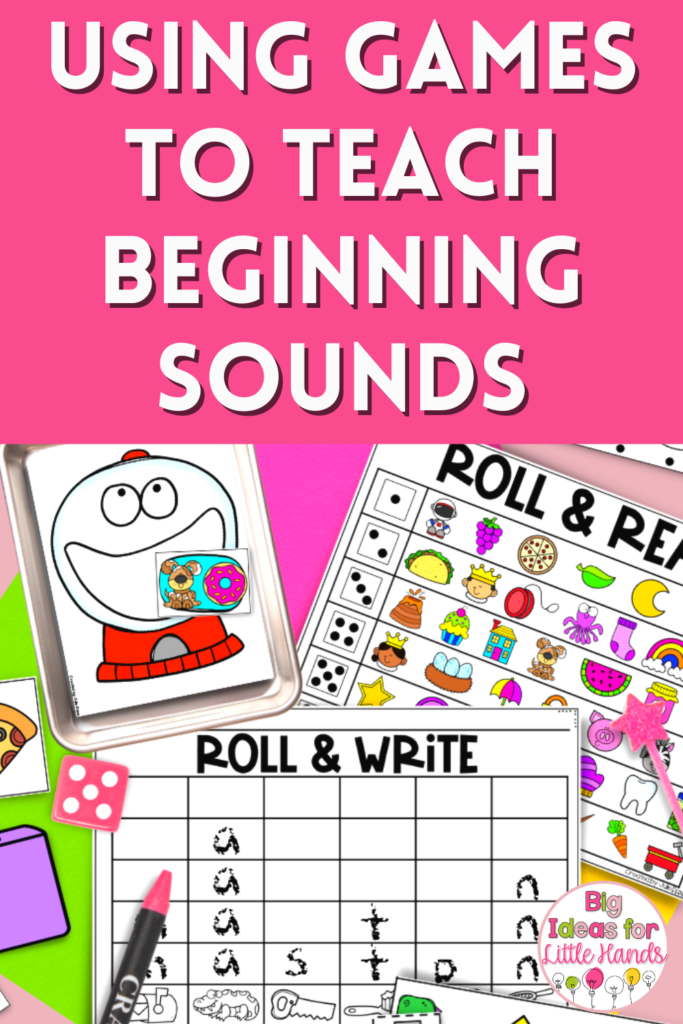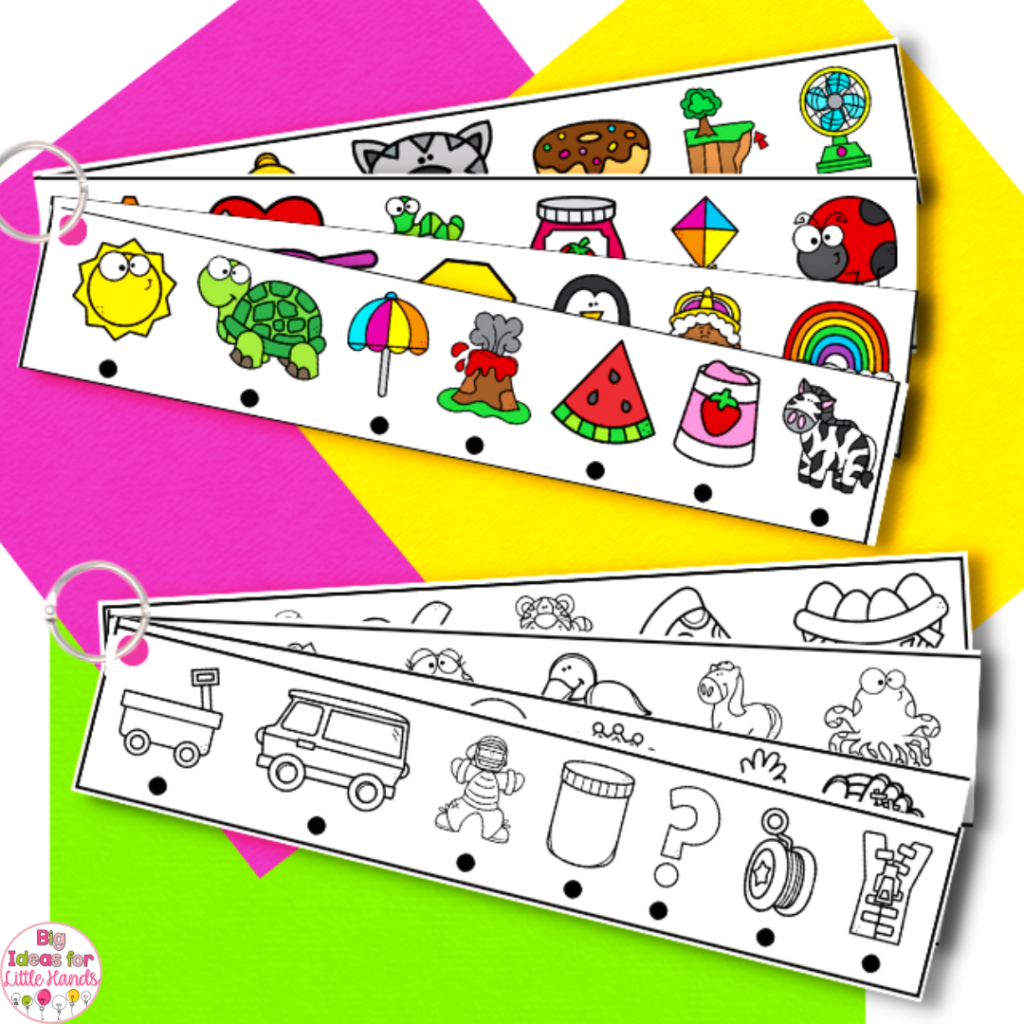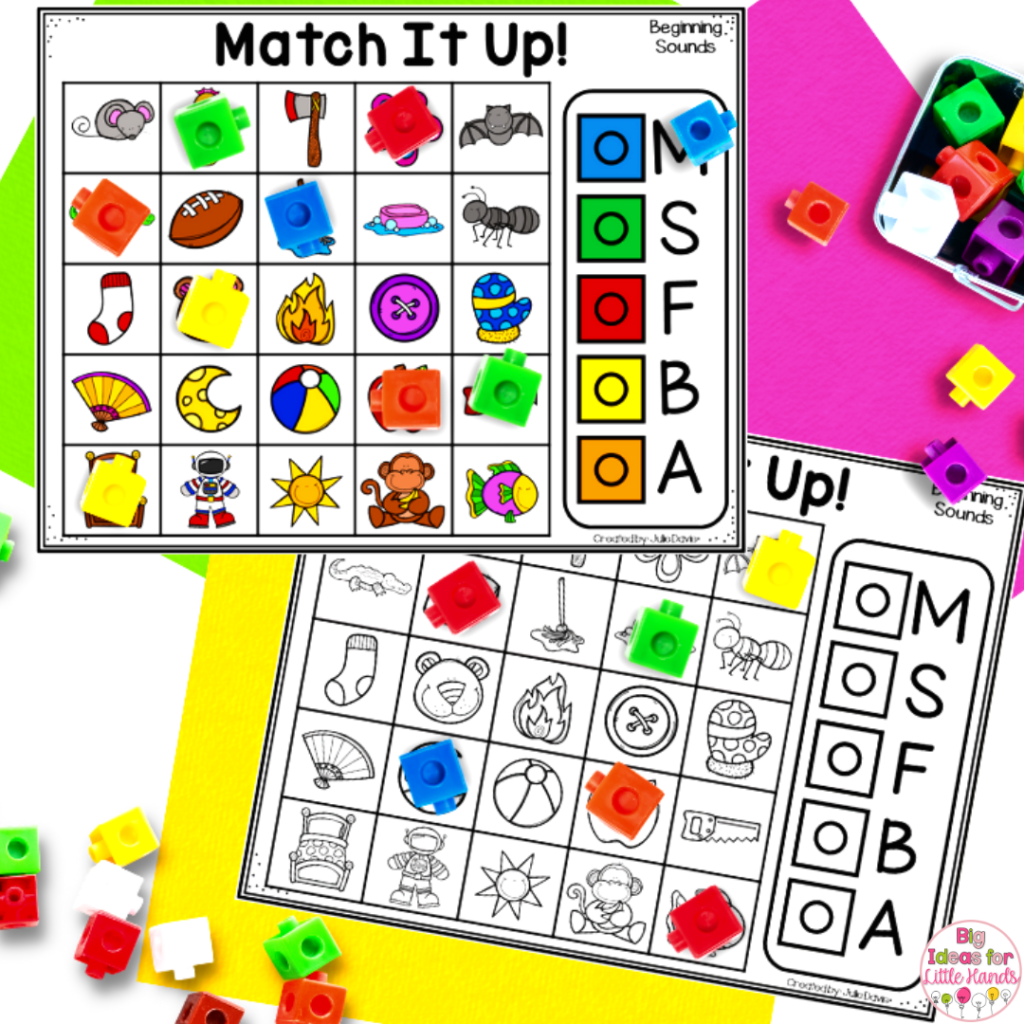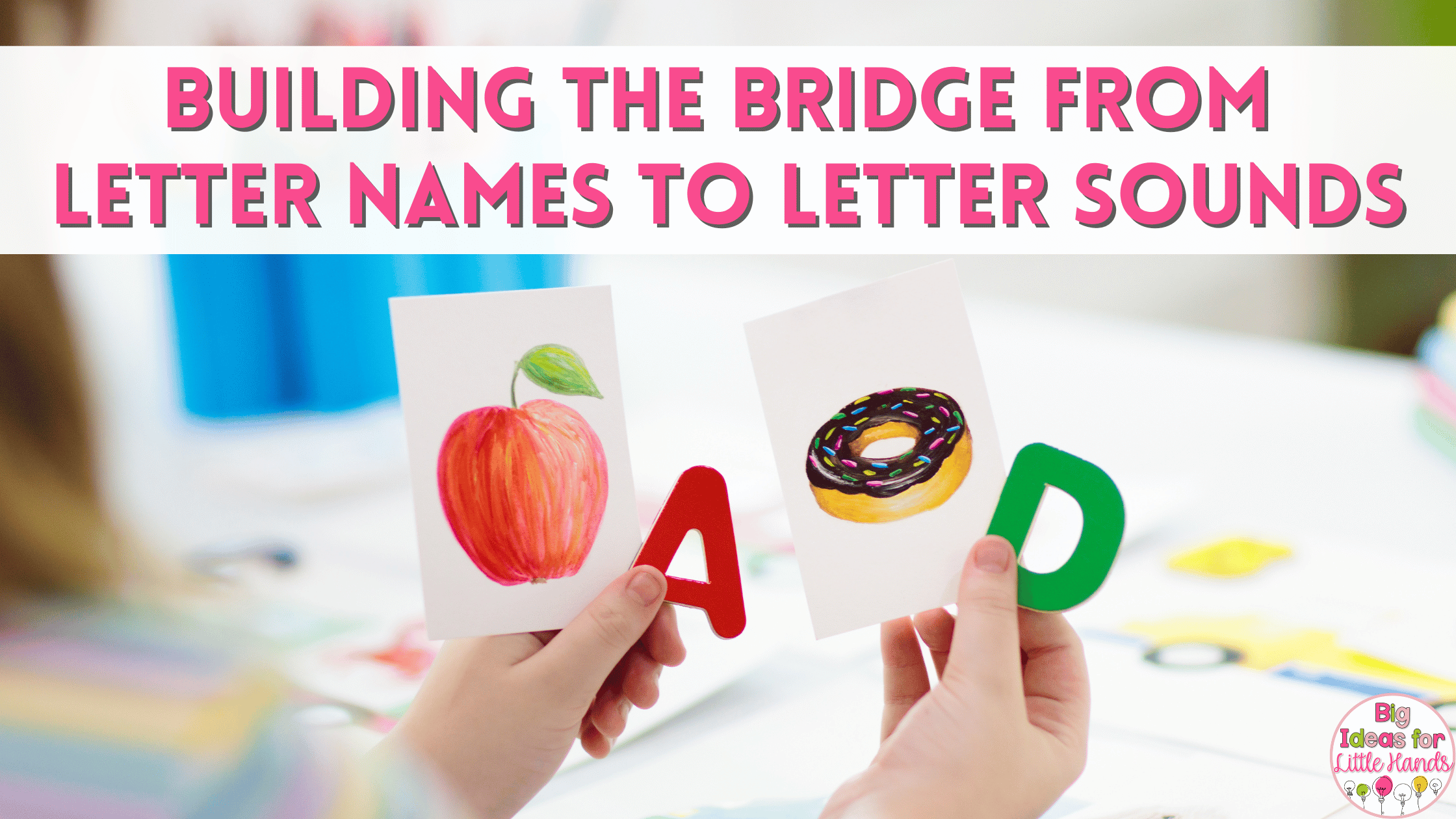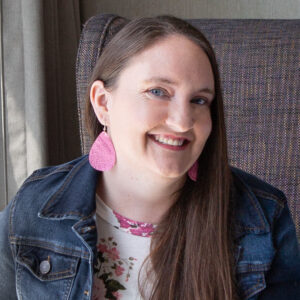Teaching children onset fluency skills is such a crucial component of phonemic awareness. If you work with littles, I’m sure you’d agree that much of your day is spent working on isolating specific letter sounds. Since this is something we practice every day in kindergarten, why not make it extra fun? If you’re ready to add some pizazz to your lessons, come along as we chat about using games to teach beginning sounds and master onset fluency!

How Can Games Help Teach Beginning Sounds?
If you’re new around here, you might not already know that I LOVE games in the classroom. We use games for just about everything from letter identification to early math skills. Why? You ask. Well, over the years I have found that incorporating games makes learning effortless for my students. In kindergarten, so much of what we do must be repeated over and over. If you’re relying solely on worksheets, this can get really boring, really quick! Instead, give games a whirl!
Even the mere mention of a game will perk up your students and get them actively participating in the lesson. They will learn more, retain more, and have an overall excitement towards learning. Using games will cultivate a positive attitude toward learning and keep your lessons feeling fresh. That sounds like a win-win, right?!
When it comes to mastering beginning sounds and onset fluency skills, games will come in so handy! I love that I can use games with my whole group, in small groups, centers, or assigned as a partner activity. Using games to practice beginning sounds makes teaching fun and keeps my students engaged! Curious about my favorites? Let’s dive in!
Whole Group Games For Beginning Sounds
In kindergarten, whole-group learning means active participation with fun, hands-on games! I love working with my whole class at once to help foster a sense of community in my room and encourage my students to participate with their peers. When it comes to beginning sounds, there are so many great games that can be played during your morning meeting or circle time to practice onset fluency.
Phonics Cards
I love using a set of phonics cards during circle time to do a quick review of beginning sounds. Sometimes to start our day, I’ll ask my students to identify the beginning sounds of picture cards. To this, simply hold up a card, say what’s on it, and ask students to say the word and then the beginning letter sound. You can select individual students for specific cards or have your whole group say it together.
Another option for phonics picture cards is to play a sorting game. I like to put all the cards in a bucket and have students draw one. They say the word, then the beginning sound, and sort by beginning sound. I usually have a pocket chart for this as well, with the letters we are targeting so students can place their card under the correct letter each time a one is drawn.
Depending on your group size, you can even use phonics cards to play memory. To do this, just make two copies and lay them out on the carpet. Have students take turns flipping 2 cards at a time and saying the word and beginning sound for each. If they get a match, they keep it. If not, they will flip the cards over again and the next student can proceed.
“Sound Talks” for Beginning Sounds
Another game I LOVE to play with my kiddos is something I call “Sound Talks”. For this activity, I have a ring of cards with a variety of word pairs on each one. I will read a word pair aloud and ask my students to repeat it and give me a thumbs up or thumbs down to indicate if the beginning sounds match.
Using some of the other cards, I’ll say a word pair with matching beginning sounds and ask students to repeat the word pair, followed by the onset. This might go something like, “ball, bat, /b/”. This game is quick and easy and requires zero additional prep once my cards are ready to go, so I sneak this one in often! Anytime we have just a few minutes to spare, we can easily practice beginning sounds.
Beginning Sound Games For Small Groups
Small groups have my heart. I LOVE seeing the big progress of my students unfold in our small group sessions. Small groups present opportunities for targeted practice among students grouped by ability, so you can dive into learning during this time. I take advantage of this when it comes to beginning sounds by incorporating fun games!
Fluency Strips For Beginning Sounds
Fluency strips are one of my favorite things to use in small groups.
Since I am working with just a few of my students, I can observe their progress and offer corrections as needed.
The fluency strips I use feature pictures. Children will work their way down the strip, pointing at a picture and saying the beginning sound for that item.
You can also ask them to say the word and then isolate the onset.
Using fluency strips is a quick and effective way to practice a variety of beginning sounds!
Beginning Sounds BINGO

Everyone loves BINGO, right?! This simple, classic game is the perfect way to get lots of practice with onset fluency skills! I like to use this in small groups since we usually have just the right amount of kiddos present. To play, I use call cards with pictures on them and say the beginning sound. Students will search their board and cover any pictures with that sound. My students love playing BINGO and it’s a great way to get those brains thinking and searching for words that match a specific beginning sound.
Beginning Sounds Games For Center Time
Centers are an everyday occurrence in the kindergarten classroom and provide valuable opportunities for continued practice. Make the most of these opportunities by providing your students with fun and engaging games to practice onset fluency! The key to choosing effective games for center time, at least in my room, is to focus on things children can be independent in. Many of the games we use whole class or in small groups will make their way to centers. I also have more games and activities that students can complete on their own too! I like to try and choose games that are easy to understand and use familiar materials.
Match It Up Beginning Sounds Game
In case you haven’t heard, we LOVE snap cubes around here! And yes, there are so many more ways to use it than just in math!
I love using snap cubes in this “Match it Up” beginning sounds game during center time. We use this game format frequently throughout the year, so it’s the perfect choice for center time since students know just what to do.
To play, kiddos will read the key to see which color cubes go with each beginning sound. Then, they find each letter sound on their board, use snap cubes to match it up and repeat until they cover their board.
Feed Me
In kindergarten, “Feed Me” games are always a huge hit! We use these pretty frequently during circle time, so my kiddos are familiar enough to play this one during centers too.
If you’re not familiar, you will love this one!
For beginning sounds, I use a cartoon gumball machine that has a mouth cut-out. Students will use a stack of gumball cards with 2 pictures on each of them.
They will say the words and then the sounds aloud. If the pictures are the same beginning sound, they “feed” the gumball machine the gumball card. This will go on until all the cards are “eaten”. This is fun when assigned as a partner game. Students can take turns choosing cards with their partners.
Looking For More Beginning Sounds Games?
Teaching onset fluency is a big job in the primary classroom and requires lots of practice. If you’re looking for even more games to support onset fluency skills and learn beginning sounds, you’re in luck! You can find all of the activities discussed here, plus MORE in my Onset Fluency Games resource.
This comprehensive resource is filled to the brim with 15 different games to target beginning sounds. You can use these games with your whole class, in small groups, during centers, and assign them as partner games in the classroom. The wide variety of games will help keep your students engaged in learning and master onset fluency skills!
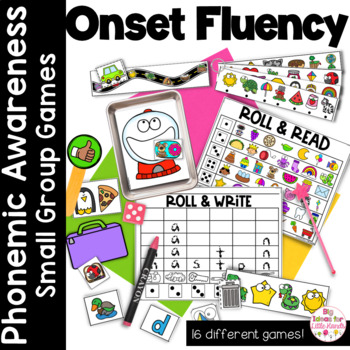
Save This Post
Pin this post on your favorite classroom Pinterest board, so you’ll be all set when it comes time to plan activities for practicing beginning sounds in your classroom.
